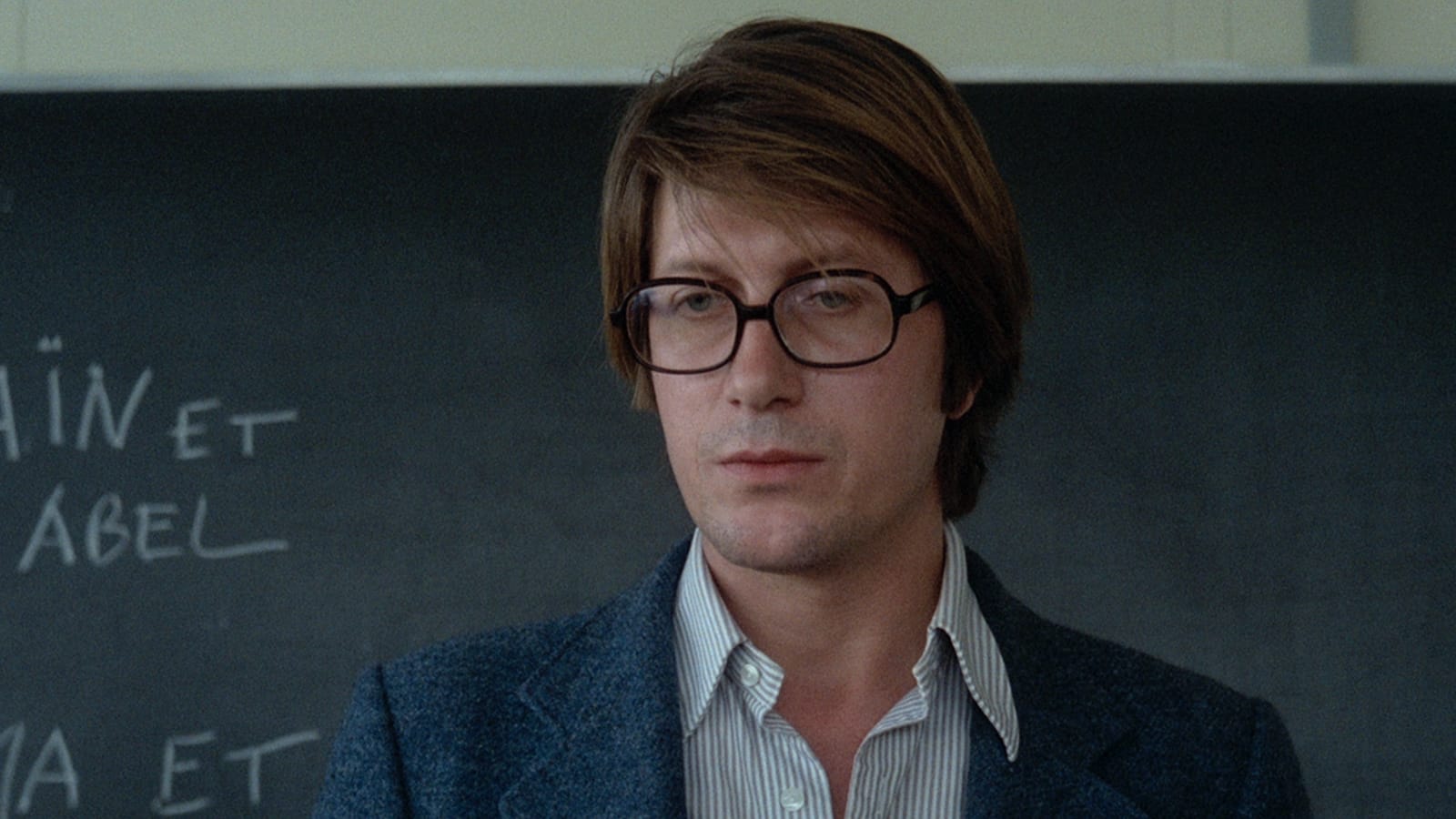Every Man for Himself

After a decade in the wilds of avant-garde and early video experimentation, Jean-Luc Godard returned to commercial cinema with this star-driven work of social commentary, while remaining defiantly intellectual and formally cutting-edge. Every Man for Himself, featuring a script by Jean-Claude Carrière and Anne-Marie Miéville, looks at the sexual and professional lives of three people—a television director (Jacques Dutronc), his ex-girlfriend (Nathalie Baye), and a prostitute (Isabelle Huppert)—to create a meditative story about work, relationships, and the notion of freedom. Made twenty years into his career, it was, Godard said, his “second first film.”
Special Features
- New high-definition digital restoration, with uncompressed monaural soundtrack on the Blu-ray
- Scénario de “Sauve qui peut (la vie)” (1979), a short video created by director Jean-Luc Godard to secure financing for Every Man for Himself
- New video essay by critic Colin MacCabe
- New interviews with actor Isabelle Huppert and producer Marin Karmitz
- Archival interviews with actor Nathalie Baye, cinematographers Renato Berta and William Lubtchansky, and composer Gabriel Yared
- Two back-to-back 1980 appearances by Godard on The Dick Cavett Show
- Godard 1980, a short film by Jon Jost, Donald Ranvaud, and Peter Wollen, featuring Godard
- Trailer
- New English subtitle translation
- PLUS: An essay by critic Amy Taubin
New cover by Fred Davis
Special Features
- New high-definition digital restoration, with uncompressed monaural soundtrack on the Blu-ray
- Scénario de “Sauve qui peut (la vie)” (1979), a short video created by director Jean-Luc Godard to secure financing for Every Man for Himself
- New video essay by critic Colin MacCabe
- New interviews with actor Isabelle Huppert and producer Marin Karmitz
- Archival interviews with actor Nathalie Baye, cinematographers Renato Berta and William Lubtchansky, and composer Gabriel Yared
- Two back-to-back 1980 appearances by Godard on The Dick Cavett Show
- Godard 1980, a short film by Jon Jost, Donald Ranvaud, and Peter Wollen, featuring Godard
- Trailer
- New English subtitle translation
- PLUS: An essay by critic Amy Taubin
New cover by Fred Davis

Cast
- Isabelle Huppert
- Isabelle Riviere
- Jacques Dutronc
- Paul Godard
- Nathalie Baye
- Denise Rimbaud
- Roland Amstutz
- Customer in room 522
- Anna Baldaccini
- Isabelle’s sister
- Fred Personne
- M. Personne
- Dore de Rosa
- Hotel attendant
- Monique Barscha
- Opera singer
- Cécile Tanner
- Paul’s daughter
- Roger Jendly
- Customer of Isabelle’s sister
- Michel Cassagne
- Piaget
- Paule Muret
- Paul’s ex-wife
- Marguerite Duras
- as herself (audio)
- Catherine Freiburghaus
- Farm girl
- Gérard Battaz
- Motorcyclist
- Serge Maillard
- Coach
- Erik Desfosses
- Cinema guy
- Nicole Wicht
- Isabelle’s friend
- Michèle Gleizer
- Woman in café
Credits
- Director
- Jean-Luc Godard
- Producers
- Alain Sarde
- Producers
- Jean-Luc Godard
- Associate producer
- Marin Karmitz
- Screenplay
- Anne-Marie Miéville
- Screenplay
- Jean-Claude Carrière
- Editors
- Anne-Marie Miéville
- Editors
- Jean-Luc Godard
- Cinematographers
- William Lubtchansky
- Cinematographers
- Renato Berta
- Cinematographers
- Jean-Bernard Menoud
- Art director
- Romain Goupil
- Production managers
- Miguel Stucky
- Production managers
- Franci Camus
- Production managers
- Josiane Morand
- Lighting
- Daniel Bernard
- Sound
- Oscar Stellavox
- Sound
- Jacques Maumont
- Sound
- Luc Yersin
- Composer
- Gabriel Yared
- Still photographer
- Anne-Marie Miéville















